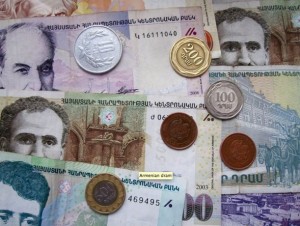 Money has always been a pivotal aspect in man and woman relationships in a family. For many years, these relationships have caused disagreements, conflicts as well as divorces between men and women. Even in European and American societies, where women have more liberty and are more inclined to start work earlier, women’s income is still not equal to that of men’s even if they carry the same work title and perform the same work-related duties. During the mid-20th century, money earned by women was referred to as “pin money”, as it was used to purchase pins and other secondary items.
Money has always been a pivotal aspect in man and woman relationships in a family. For many years, these relationships have caused disagreements, conflicts as well as divorces between men and women. Even in European and American societies, where women have more liberty and are more inclined to start work earlier, women’s income is still not equal to that of men’s even if they carry the same work title and perform the same work-related duties. During the mid-20th century, money earned by women was referred to as “pin money”, as it was used to purchase pins and other secondary items.
In the Armenian society as well, where a man is considered to be the main contributor to the household income, a woman’s income has secondary importance and value. Women, not having the opportunity to work and have their own income, or earning little money, were left with no other choice than to ask their men for money.
Although the number of employed women who are able to contribute a significant amount to the family income has increased recently, differentiations between men and women’s income still seem to exist. Women’s salary, regardless of the amount or the role in the household, is still not recognized as being as important as the man’s salary. Women’s salary is meant to be used for household and secondary items, and is considered to be an additional source of income.
It seems that in this situation much of the guilt is placed on the men firstly, who quite often do not allow their wives to work. Nevertheless, women stances on their own income and, in general, on money play a crucial role.
In August and September of 2011, a sociological research was conducted concerning the people living in Yerevan and their ideals toward money. The research revealed that females residing in the city don’t carry similar beliefs regarding the difference between a man’s and a woman’s income.
Within the frames of the research it was also important to reveal main peculiarities of money usage in households. The majority of respondents think that man’s income should be higher than woman’s income in the framework of men’s and women’s incomes relations (see table 1):
Table 1: Comparisons between a husband and wife’s income in family according to people living in Yerevan

1) Husband’s income should be higher than wife’s income; 2) Husband’s and wife’s incomes should be equal; 3) Wife’s income should be higher than husband’s income
It is also interesting to study the answers of the respondents based on gender differentiation: 50% of the women respondents claimed that the husband’s income should be higher than the wife’s income, while 57% of the men respondents think that a woman and a man’s income should be equal. Only 5% of the women in the survey believed that a woman’s income should be higher than the man’s.
Women’s positions on men and women’s income varied by different age groups surveyed. The majority of women, between the ages of 18-35 years old (73%), believe that a man’s income should be higher than a woman’s income. 64% of women, between the ages of 36-60, also carried the same belief.
However, marital status affects the perception women have toward income. 67% of the single women believe that a man and woman’s income should be equal in the family, compared to the married women, who prefer that the man’s income be higher than the woman’s.
“It is interesting to note the opinion females carry toward a man’s income to be higher than woman’s income. Here are some quotes from interviews”
– 23-year-old female –
“A man’s salary should be higher, not to make himself feel like a fool, but a woman should earn enough not to feel the need to beg a man for money…”
– 31-year-old female –
“A man’s income should be higher than a woman’s income. If a woman earns more, she is able to be more dominant in the relationship. I should also mention that in many cases, this situation is appropriate; the Armenian women do dominate if they get the chance. This is why I’d want the husband’s income to be higher…”
As a result, women living in Yerevan don’t view their own income as means in defining their status in society. A man’s income, on the other hand, does establish his status in society to such a degree, that it even defines his wife’s status. Even if a woman earns enough money to provide for the family, she is defined by the man’s income.
Regardless of the role changes men and women have been experiencing in modern day society, gender stereotypes have still influenced the beliefs held toward money in current society.
This revelation is concerning. It’s no secret that one factor ensuring one’s personal independence is one’s financial status; the level of freedom one can obtain has a lot to do with the level of money one earns. However, women themselves aren’t too concerned with their own financial gain in ensuring their freedom and relying more on themselves than others. This, of course, is troublesome. In a society where it is permanently spoken about women’s rights protection, it is strange that women themselves do not have enough consciousness about the importance of having own money or we can say they do not care about it.
Therefore, in order to increase independence and equality of women, first and foremost, we need to change their stance and aspirations for independence, which in their turn will serve as a basis for performing appropriate behavior.
Anahit Hakobyan



